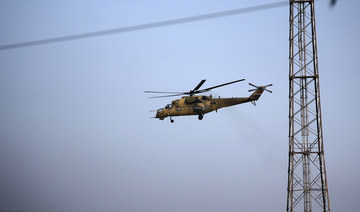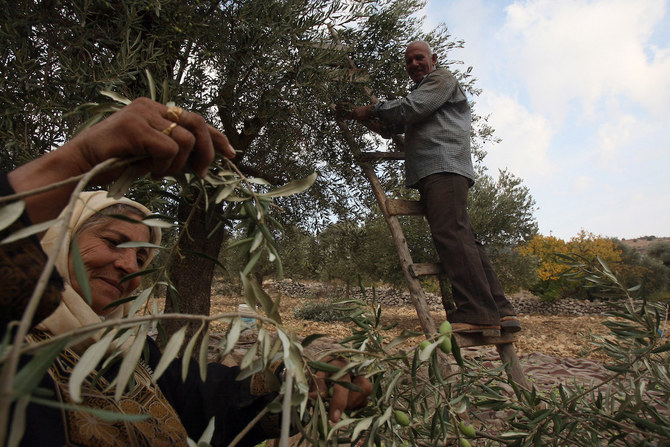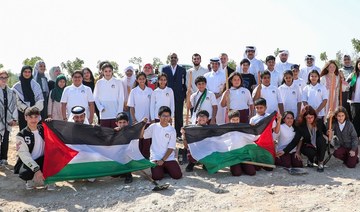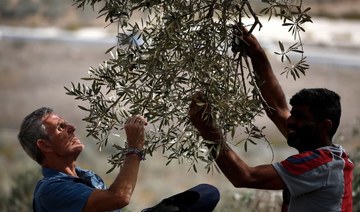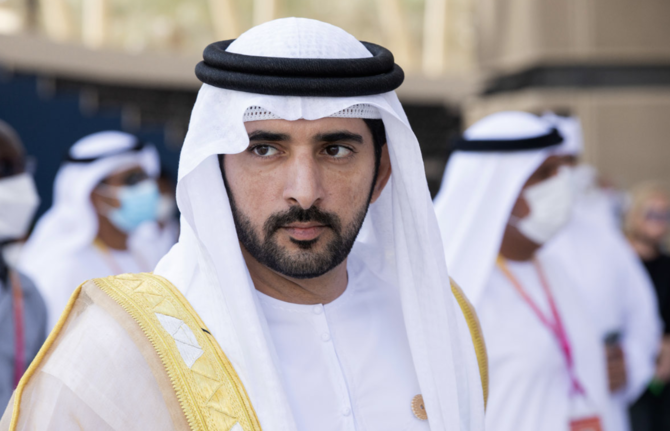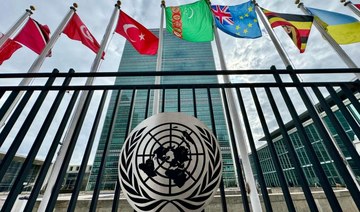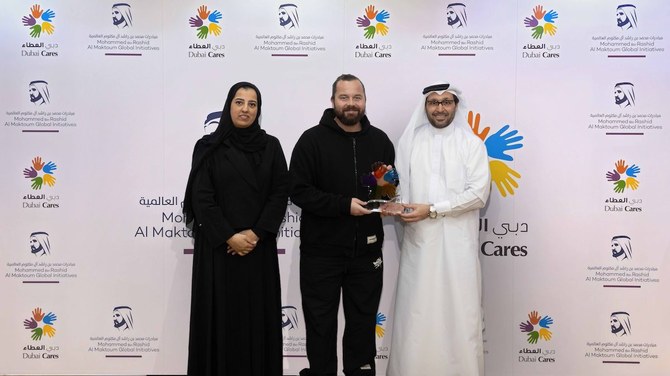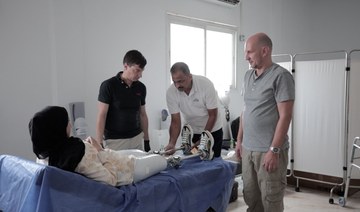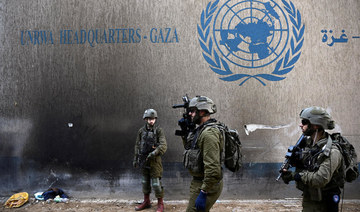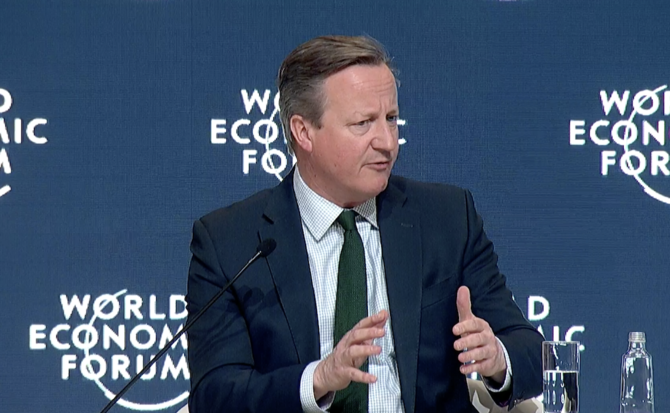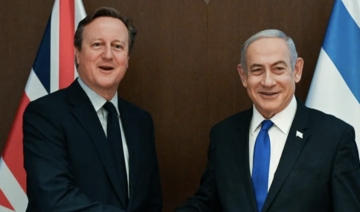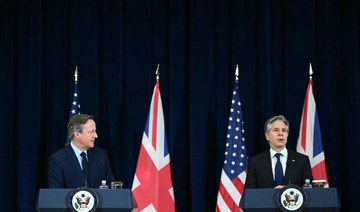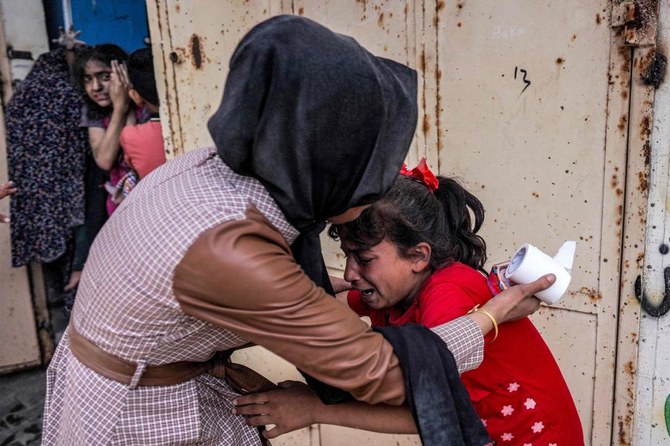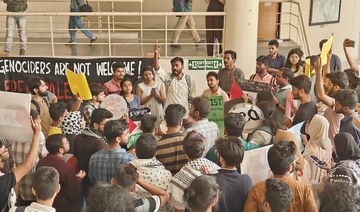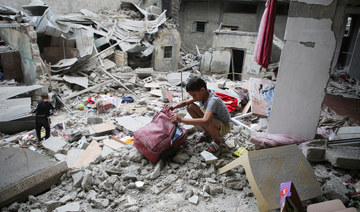BAGHDAD: Iraqi Prime Minister Adel Abdul Mahdi is putting increased pressure on the nation’s armed factions, including Shiite-dominated paramilitary troops and Kurdish guerrillas, in an attempt to tighten his control over them, Iraqi military commanders and analysts said on Monday.
Military commanders have been stripped of some of their most important powers as part of the efforts to prevent them from being drawn into local or regional conflicts.
The increasingly strained relations between the US and Iran in the region is casting a large shadow over Iraq.
Each side has dozens of allied armed groups in the country, which has been one of the biggest battlegrounds for the two countries since 2003.
Attempting to control these armed factions and military leaders is one of the biggest challenges facing the Iraqi government as it works to keep the country out of the conflict.
On Sunday, Abdul Mahdi dissolved the leadership of the joint military operations.
They will be replaced by a new one, under his chairmanship, that includes representatives of the ministries of defense and interior, the military and security services, the Popular Mobilization Units (PMU) and the Ministry of Peshmerga, which controls the military forces of the autonomous Kurdistan region.
According to the prime minister’s decree, the main tasks of the new command structure are to “lead and manage joint operations at the strategic and operational level,” “repel all internal and external threats and dangers as directed by the commander-in-chief of the armed forces,” “manage and coordinate the intelligence work of all intelligence and security agencies,” and “coordinate with international bodies that support Iraq in the areas of training and logistical and air support.”
“This decree will significantly and effectively contribute to controlling the activities of all combat troops, not just the PMU,” said a senior military commander, who declined to be named.
“This will block any troops associated with any local political party, regional or international” in an attempt to ensure troops serve only the government’s goals and the good of the country.
“This is explicit and unequivocal,” he added.
Since 2003, the political process in Iraq has been based on political power-sharing system. This means that each parliamentary bloc gets a share of top government positions, including the military, proportionate to its number of seats in Parliament. Iran, the US and a number of regional countries secure their interests and ensure influence by supporting Iraqi political factions financially and morally.
This influence has been reflected in the loyalties and performance of the majority of Iraqi officials appointed by local, regional and international parties, including the commanders of combat troops.
To ensure more government control, the decree also stripped the ministers of defense and interior, and leaders of the counterterrorism, intelligence and national security authorities, and the PMU, from appointing, promoting or transferring commanders. This power is now held exclusively by Abdul Mahdi.
“The decree is theoretically positive as it will prevent local, regional and international parties from controlling the commanders,” said another military commander.
“This means that Abdul Mahdi will be responsible to everyone inside and outside Iraq for the movement of these forces and their activities.
“The question now is whether Abdul Mahdi will actually be able to implement these instructions or will it be, like others, just ink on paper?”
The PMU is a government umbrella organization established by former Iraqi Prime Minister Nuri Al-Maliki in June 2014 to encompass the armed factions and volunteers who fought Daesh alongside the Iraqi government. Iranian-backed factions such as Badr Organization, Asaib Ahl Al-Haq and Kataib Hezbollah represent the backbone of the forces.
The US, one of Iraq’s most important allies in the region and the world, believes Iran is using its influence within the PMU to destabilize and threaten Iraq and the region. Abdul Mahdi is under huge external and internal pressure to abolish the PMU and demobilize its fighters, who do not report or answer to the Iraqi government.
The prime minister aims to ease tensions between the playmakers in Iraq, especially the US and Iran, by preventing their allies from clashing on the ground or striking against each other’s interests.
“Abdul Mahdi seeks to satisfy Washington and reassure them that the (armed) factions of the PMU will not move against the will of the Iraqi government,” said Abdullwahid Tuama, an Iraqi analyst.
The prime minister is attempting a tricky balancing act by aiming to protect the PMU, satisfy the Iranians and prove to the Americans that no one is outside the authority of the state, he added.




